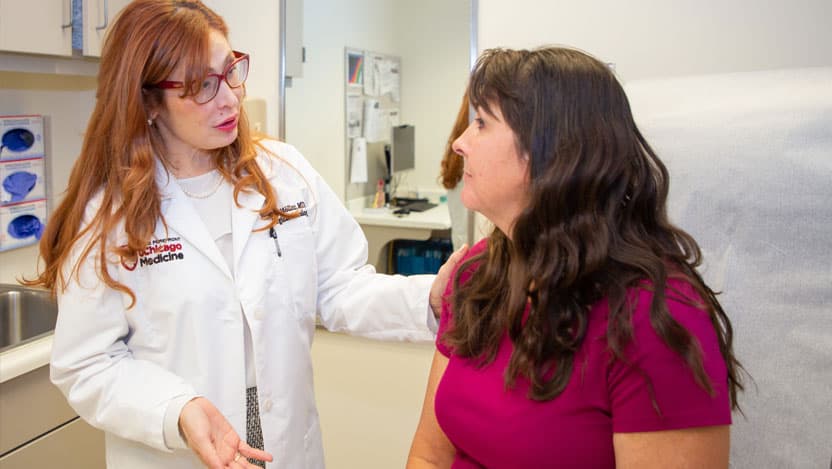Regional Cancer Therapies

At the University of Chicago Medicine Comprehensive Cancer Center, our highly experienced team provides a wide range of regional cancer therapies — including many that are not available at most hospitals.
Regional therapies can only be given by physicians with special training and expertise at leading cancer centers. Our UChicago Medicine team is proud to be one of few nationwide offering this level of advanced care for abdominal cancers. As a patient, you benefit from our specialists’ combined skill and knowledge in personalizing these therapies to your needs and preferences.
At UChicago Medicine, we believe that world-class cancer care is not only about treating disease, but about caring for the whole person. We bring together the finest minds in surgery, oncology, and supportive care to help each patient live fully, recover strongly, and face the future with confidence.
Regional therapies are cancer treatments that deliver high doses of chemotherapy, radiation or medicine directly to a specific organ or body part. They are especially beneficial for adults with advanced, or metastatic, cancers that have spread to organs inside the abdomen.
Regional therapies can also help cancer patients who may not be able to have surgery for their tumors. Treatment plans that include regional therapies are even allowing some patients who were once told their cancer was untreatable to achieve a longer life.
If you have metastatic abdominal cancer, regional therapy may be a treatment option for you. Your doctor can help you understand the different types of regional therapies and which option may be a good fit for you.
You may benefit from regional therapies if you have intra-abdominal metastases (cancer that has spread inside the abdomen) from:
- Appendix cancer or other tumors of the appendix
- Pseudomyxoma peritonei (a rare tumor that usually starts in the appendix and spreads inside the abdomen)
- Colorectal cancer
- Peritoneal mesothelioma
- Ovarian cancer
- Stomach (gastric) cancer
- Sarcomas
- Liver tumors (primary or metastatic)
You may also benefit from regional therapies if you have:
- In-transit cutaneous or nodal metastases from malignant melanoma
- Unresectable extremity sarcomas (meaning they cannot be removed with surgery)
Besides your type of cancer, other factors can determine if regional therapy is right for you, including:
- Where and how quickly the cancer has spread in your body
- Your tumor type and how likely it is to recur (return)
- Your previous cancer treatments
- Your overall health
- Your treatment goals
In most cases, you can still have regional cancer therapy if you have already had cancer surgery or another cancer treatment.
